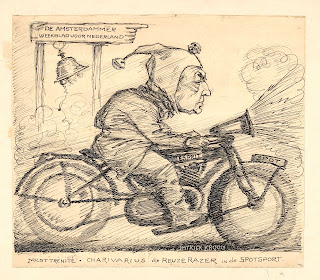| Dearest creature in Creation, |
| Studying English pronunciation, |
| I will teach you in my verse |
| Sounds like corpse, corps, horse, and worse. |
| I will keep you, Susy,† busy, |
| Make your head
with heat grow dizzy; |
| Tear in eye, your dress you'll tear; |
| So shall I! Oh, hear my prayer. |
| Pray, console your loving poet, |
| Make my coat look new, dear, sew it! |
| Just compare heart, beard, and heard, |
| Dies and diet, lord and word. |
| Sword and sward, retain and Britain |
| (Mind the latter, how it's written!) |
| Made has not the sound of bade, |
| Say-said, pay-paid, laid, but plaid. |
| Now I surely will not plague you |
| With such words as vague and ague, |
| But be careful how you speak, |
| Say break, steak,
but bleak and streak. |
| Previous, precious, fuchsia, via; |
| Pipe, snipe, recipe and choir, |
| Cloven, oven; how and low; |
| Script, receipt; shoe, poem, toe. |
| Hear me say, devoid of trickery: |
| Daughter, laughter and Terpsichore, |
| Typhoid; measles, topsails, aisles; |
| Exiles, similes, reviles; |
| Wholly, holly; signal, signing; |
| Thames; examining, combining; |
| Scholar, vicar, and cigar, |
| Solar, mica, war, and far. |
| From 'desire': desirable– admirable from 'admire'; |
| Lumber, plumber, bier, but brier; |
| Chatham, brougham; renown but known, |
| Knowledge; done, but gone and tone, |
| One, anemone; Balmoral; |
| Kitchen, lichen; laundry, laurel; |
| Gertrude, German; wind and mind; |
| Scene, Melpomene, mankind; |
| Tortoise, turquoise, chamois-leather, |
| Reading, Reading, heathen, heather. |
| This phonetic labyrinth |
| Gives moss, gross, brook, brooch, ninth,
plinth. |
| Have you ever yet endeavoured |
| To pronounce revered and severed, |
| Demon, lemon, ghoul, foul, soul, |
| Peter, petrol and patrol? |
| Billet does not end like ballet; |
| Bouquet, wallet, mallet, chalet. |
| Blood and flood are not like food, |
| Nor is mould
like should and would. |
| Banquet is not nearly parquet, |
| Which is said to rhyme with 'darkly'. |
| Viscous, viscount; load and broad; |
| Toward, to forward, to reward, |
| Ricocheted and crocheting, croquet? |
| And your pronunciation's okay. |
| Rounded, wounded; grieve and sieve; |
| Friend and fiend; alive
and live. |
| Is your R correct in higher? |
| Keats asserts it rhymes Thalia. |
| Hugh, but hug, and hood, but hoot, |
| Buoyant, minute, but minute. |
| Say abscission
with precision, |
| Now: position
and transition. |
| Would it tally with my rhyme |
| If I mentioned paradigm? |
| Twopence, threepence, tease are easy, |
| But cease, crease, grease and greasy? |
| Cornice, nice, valise, revise, |
| Rabies, but lullabies. |
| Of such puzzling words as nauseous, |
| Rhyming well with cautious, tortious, |
| You'll envelop
lists, I hope, |
| In a linen envelope. |
| Would you like some more? You'll have it! |
| Affidavit, David, davit. |
| To abjure, to perjure. Sheik |
| Does not sound like Czech but ache. |
| Liberty, library; heave and heaven; |
| Rachel, ache, moustache, eleven, |
| We say hallowed,
but allowed; |
| People, leopard; towed, but vowed. |
| Mark the difference, moreover, |
| Between mover, plover, Dover, |
| Leeches, breeches; wise, precise; |
| Chalice but police and lice. |
| Camel, constable, unstable; |
| Principle, disciple; label; |
| Petal, penal, and canal; |
| Wait, surmise, plait, promise; pal. |
| Suit, suite, ruin; circuit, conduit |
| Rhyme with 'shirk it' and 'beyond it.' |
| But it is not hard to tell |
| Why it's pall, mall, but Pall Mall. |
| Muscle, muscular; gaol, iron; |
| Timber, climber; bullion, lion, |
| Worm and storm;
chaise, chaos, chair; |
| Senator, spectator, mayor. |
| Ivy, privy, famous; clamour |
| And enamour
rime with 'hammer.' |
| Pussy, hussy, and possess, |
| Desert, but desert,
address. |
| Golf, wolf, countenance, lieutenants |
| Hoist in lieu of flags left pennants. |
| Courier, courtier, tomb, bomb, comb, |
| Cow, but Cowper,
some, and home. |
| Solder, soldier! Blood is thicker, |
| Quoth he, 'than liqueur or liquor', |
| Making, it is sad but true, |
| In bravado, much ado. |
| Stranger does not rhyme with anger, |
| Neither does devour with clangour. |
| Pilot, pivot, gaunt, but aunt, |
| Font, front, wont, want, grand, and grant. |
| Arsenic, specific, scenic, |
| Relic, rhetoric, hygienic. |
| Gooseberry, goose, and close, but close, |
| Paradise, rise, rose, and dose. |
| Say inveigh, neigh, but inveigle, |
| Make the latter rhyme with eagle. |
| Mind! Meandering but mean, |
| Valentine and magazine. |
| And I bet you, dear, a penny, |
| You say mani-(fold) like many, |
| Which is wrong. Say rapier, pier, |
| Tier (one who ties), but tier. |
| Arch, archangel; pray, does erring |
| Rhyme with herring or with staring? |
| Prison, bison, treasure trove, |
| Treason, hover, cover, cove, |
| Perseverance, severance. Ribald |
| Rhymes (but piebald doesn't) with nibbled. |
| Phaeton, paean, gnat, ghat, gnaw, |
| Lien, psychic, shone, bone, pshaw. |
| Don't be down, my own, but rough it, |
| And distinguish buffet, buffet; |
| Brood, stood, roof, rook, school, wool, boon, |
| Worcester, Boleyn, to impugn. |
| Say in sounds correct and sterling |
| Hearse, hear, hearken, year and yearling. |
| Evil, devil, mezzotint, |
| Mind the Z! (A
gentle hint.) |
| Now you need not pay attention |
| To such sounds as I don't mention, |
| Sounds like pores, pause, pours and paws, |
| Rhyming with the pronoun yours; |
| Nor are proper names included, |
| Though I often heard, as you did, |
| Funny rhymes to unicorn, |
| Yes, you know them, Vaughan and Strachan. |
| No, my maiden, coy and comely, |
| I don't want to speak of Cholmondeley. |
| No. Yet Froude compared with proud |
| Is no better than McLeod. |
| But mind trivial and vial, |
| Tripod, menial, denial, |
| Troll and trolley, realm and ream, |
| Schedule, mischief, schism, and scheme. |
| Argil, gill, Argyll, gill. Surely |
| May be made to rhyme with Raleigh, |
| But you're not supposed to say |
| Piquet rhymes with sobriquet. |
| Had this invalid invalid |
| Worthless documents? How pallid, |
| How uncouth he, couchant, looked, |
| When for Portsmouth I had booked! |
| Zeus, Thebes, Thales, Aphrodite, |
| Paramour, enamoured, flighty, |
| Episodes, antipodes, |
| Acquiesce, and obsequies. |
| Please don't monkey with the geyser, |
| Don't peel 'taters with my razor, |
| Rather say in accents pure: |
| Nature, stature and mature. |
| Pious, impious, limb, climb, glumly, |
| Worsted, worsted, crumbly, dumbly, |
| Conquer, conquest, vase, phase, fan, |
| Wan, sedan and artisan. |
| The TH will surely trouble you |
| More than R, CH or W. |
| Say then these phonetic gems: |
| Thomas, thyme, Theresa, Thames. |
| Thompson, Chatham, Waltham, Streatham, |
| There are more but I forget 'em— |
| Wait! I've got it: Anthony, |
| Lighten your anxiety. |
| The archaic word albeit |
| Does not rhyme with eight-you see it; |
| With and forthwith, one has voice, |
| One has not, you make your choice. |
| Shoes, goes, does. Now
first say: finger; |
| Then say: singer, ginger, linger. |
| Real, zeal, mauve, gauze and gauge, |
| Marriage, foliage, mirage, age, |
| Hero, heron, query, very, |
| Parry, tarry fury, bury, |
| Dost, lost, post, and doth, cloth, loth, |
| Job, Job, blossom, bosom, oath. |
| Faugh, oppugnant, keen oppugners, |
| Bowing, bowing, banjo-tuners |
| Holm you know, but noes, canoes, |
| Puisne, truism, use, to use? |
| Though the difference seems little, |
| We say actual, but victual, |
| Seat, sweat, chaste, caste, Leigh, eight, height, |
| Put, nut, granite, and unite. |
| Reefer does not rhyme with deafer, |
| Feoffer does, and zephyr, heifer. |
| Dull, bull, Geoffrey, George, ate, late, |
| Hint, pint, senate, but sedate. |
| Gaelic, Arabic, pacific, |
| Science, conscience, scientific; |
| Tour, but our,
dour, succour, four, |
| Gas, alas, and Arkansas. |
| Say manoeuvre, yacht and vomit, |
| Next omit, which differs from it |
| Bona fide, alibi, |
| Gyrate, dowry and awry. |
| Sea, idea, guinea, area, |
| Psalm, Maria, but malaria. |
| Youth, south, southern, cleanse and clean, |
| Doctrine, turpentine, marine. |
| Compare alien with Italian, |
| Dandelion with battalion, |
| Rally with ally; yea, ye, |
| Eye, I, ay, aye, whey, key, quay! |
| Say aver,
but ever, fever, |
| Neither, leisure, skein, receiver. |
| Never guess– it is not safe, |
| We say calves, valves, half, but Ralf. |
| Starry, granary, canary, |
| Crevice, but device, and eyrie, |
| Face, but preface, then grimace, |
| Phlegm, phlegmatic, ass, glass, bass. |
| Bass, large, target, gin, give, verging, |
| Ought, oust, joust, and scour, but scourging; |
| Ear, but earn; and ere and tear |
| Do not rhyme with here but heir. |
| Mind the O of off and often |
| Which may be pronounced as orphan, |
| With the sound of saw and sauce; |
| Also soft, lost, cloth and cross. |
| Pudding, puddle, putting. Putting? |
| Yes: at golf it rhymes with shutting. |
| Respite, spite, consent, resent. |
| Liable, but Parliament. |
| Seven is right, but so is even, |
| Hyphen, roughen, nephew, Stephen, |
| Monkey, donkey, clerk and jerk, |
| Asp, grasp, wasp, demesne, cork, work. |
| A of valour,
vapid vapour, |
| S of news (compare newspaper), |
| G of gibbet,
gibbon, gist, |
| I of antichrist and grist, |
| Differ like diverse and divers, |
| Rivers, strivers, shivers, fivers. |
| Once, but nonce,
toll, doll, but roll, |
| Polish, Polish, poll and poll. |
| Pronunciation– think of Psyche!– |
| Is a paling, stout and spiky. |
| Won't it make you lose your wits |
| Writing groats and saying 'grits'? |
| It's a dark abyss or tunnel |
| Strewn with stones like rowlock,
gunwale, |
| Islington, and Isle of Wight, |
| Housewife, verdict and indict. |
| Don't you think so, reader, rather, |
| Saying lather, bather, father? |
| Finally, which rhymes with enough, |
| Though, through, bough, cough, hough, sough, tough? |
| Hiccough has the sound of 'cup'. |
| My advice is: give it up! |


















